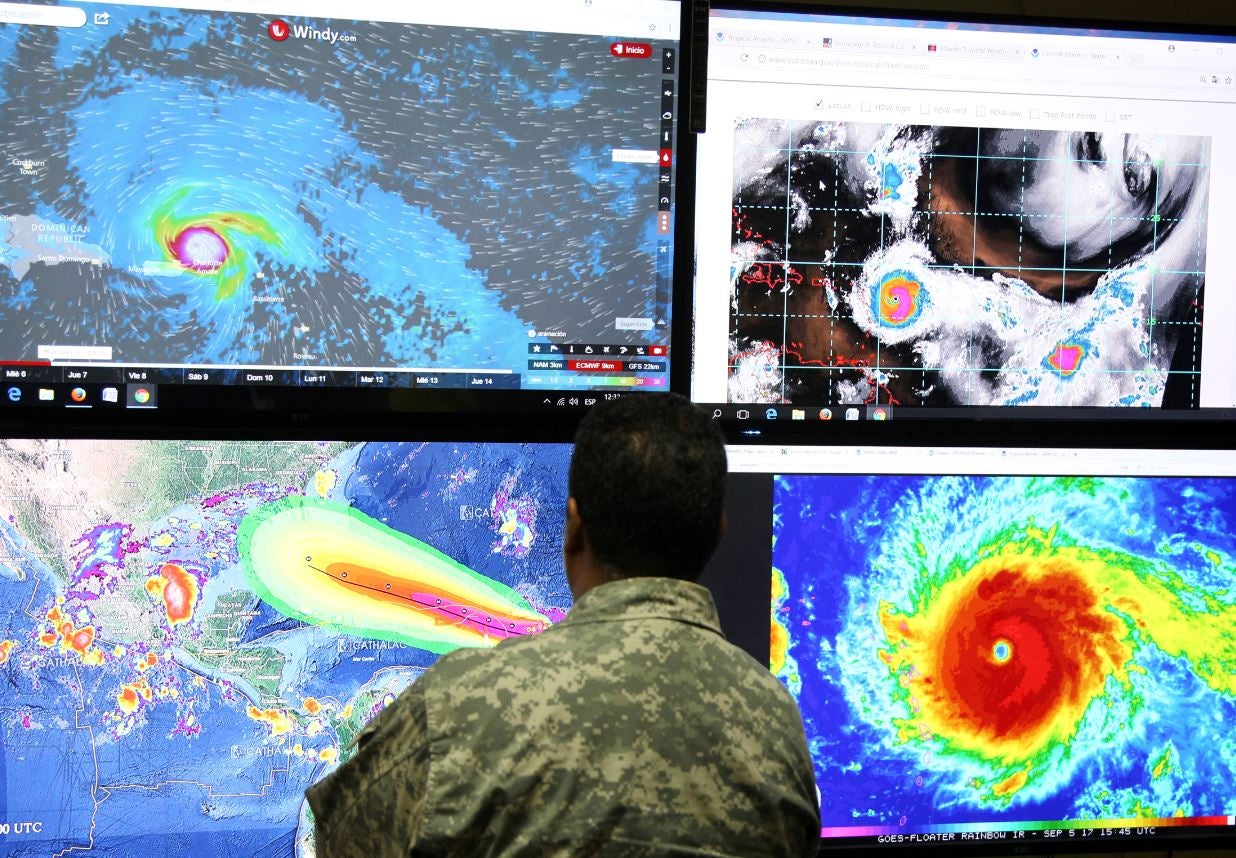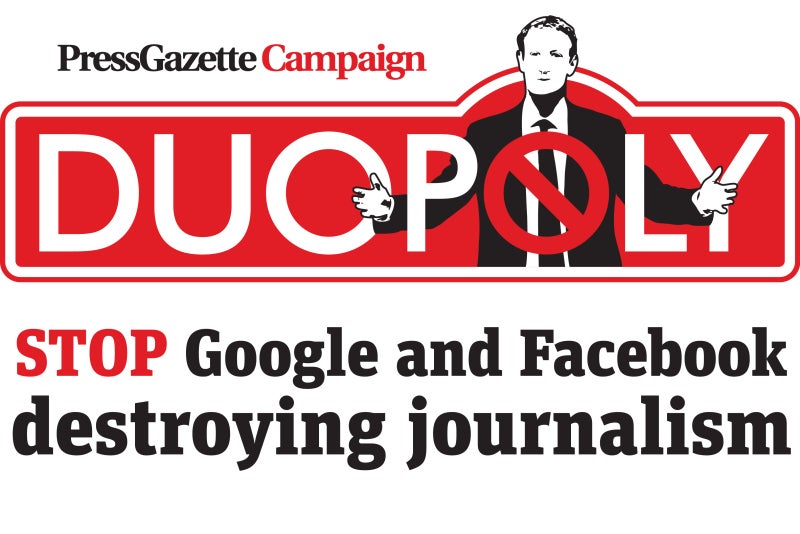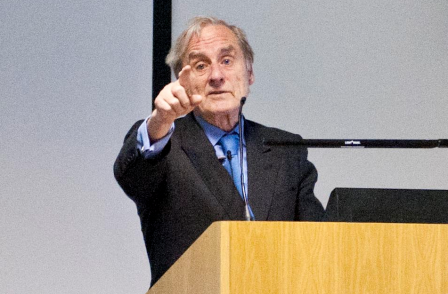
Press Gazette’s Duopoly campaign warns that Google and Facebook’s dominance over the £10bn UK digital advertising market is squeezing news publishers out of business. Here Sir Harold Evans gives the initiative his backing:
Facebook and Google are the Harvey and Irma of journalism – and democracy. Whatever else they do, the electronic duopoly deprive millions of information and argument as surely as the series of super storms deprive millions of light, power, home and hearth.
The climate change deniers will go on calling the link between hurricanes and greenhouse gases a ‘hoax’ until they’re standing on the last ice floe, but no one can deny the devastating effect of Facebook and Google on the viability of news organisations to investigate complexity and resist suppression.
Check out the news organisations starved to death. Or watch what happens when an autocratic government shuts down independent news from newspapers and radio as Cambodia is doing.
Facebook and Google are platforms, distributors, with none of the attendant standards of the best journalism. They bring a vast carelessness to political news and social responsibility. They are not media companies, with reporters, fact checkers, editors. They don’t send reporters to Syria, don’t investigate corruption. They have no institutional memory.
Robert Thomson, chief executive of News Corp, has it just right: “There has been no tradition, as there is at great newspapers, of each day arguing over rights and wrongs, of fretful, thoughtful agonizing over social responsibility and the freedom of speech”.
It may seem a small matter that the Oldham Evening Chronicle shuts down after 160 years, just another loss of another local service, the loss of another community watchdog. But in a week of chilling significance, Oldham shared news space with Moscow. Facebook finally owned up to helping the Ruskies pollute the 2016 US Presidential election.
The revelations, pursued with good old fashioned reporting, led by Scott Shane of the New York Times, should rally more Parliamentary support for the Press Gazette campaign to civilize the duopoly.

It will take some thought not to impede the proper business of the megas, but serious argument about precisely how to reconcile conflicting freedoms should get going with urgency.
Two stains on the halos of both megas require attention, first Facebook.
US intelligence agencies last January confirmed Mr Putin’s taste for the old fashioned cyber mugging of hacking emails and exploiting Wikileaks calculated to damage Hillary Clinton. The penetration of Facebook is more sophisticated, a stiletto rather than a cudgel.
To understand just how it works, let’s put ourselves in the thick of the US election. I’m in touch on line with Melvin Redick, nice guy from Harrisburg Pennsylvania. I like the way he wears his baseball hat back front and the photo of his daughter’s face-painting is charming.
On 8 June 2016 he texts me a link to a start-up website: “These guys show hidden truth about Hillary Clinton, George Soros and other leaders of the US. Visit #DCLeaks website. It’s really interesting!”
I’m too busy to follow up, but at the office water cooler Amy from the room along the corridor says she’s changed her mind about vo ting for Hillary. She’s grateful to Katherine Fulton for passing on some facts from DCLeaks.
Readers of Press Gazette, being supernaturally well informed, may recognize DCLeaks as an invention of Russian intelligence launched on 20 June, 2016, and Melvin, and Katherine, and Alicia and thousands of other Facebookers as the cyber phantoms they are.
But American voters had no clue they were being duped during the election by ads mostly directed against Clinton and stirring distrust all round.
The Russians trolls employed by the “Internet Research Agency” mimicking ordinary Americans Joes, bought 470 accounts. They placed 3,000 ‘dark’ ads in the election, meaning they tailored them for specific voting audiences among Facebook’s billion-plus active daily users. The oison was pumped out.
Facebook has earned some credit by identifying and removing the 470 fake accounts; Twitter has done nothing and lets automated entries manufacture “trends”. But Facebook has been complacent about the ease of faking on its site, slow to respond. It has long way to go to for the transparency to restore trust to the standards of the best mainstream journalism.
The stakes are high. Studies at the University of Virginia lead Professor Siva Vaidhyanathan to conclude: “We are in the midst of a worldwide internet-based assault on democracy.” Facebook has contributed to that and profited from it.
The digital gorillas are great in their ways. Facebook as social glue. Google vital for search: in my 2004 book on the history of innovation I lauded its Page Ranking but also its banner “You can make money without doing evil”.
Hello?
Square that with Google sucking up classified advertising, the lifeblood of local newspapers. That’s collateral damage, the digerati say. Business is business.
But no silver tongue can escape the odium of shielding a notorious website that sells children for sex.
Nicholas Kristof in the New York Times has long fumed about the villainy of the trafficking website Backpage.com. It’s astonishing that he now reports Google is quietly using its lobbying muscle in Washington to kill a narrowly focused bipartisan bill entitled Stop Enabling Sex Trafficking Act. Google also supports organisations helping Backpage fight lawsuits over its sex trafficking.
Hypocrisy at the speed of light.
Sir Harold Evans, former editor of The Sunday Times and Times, is the author of Do I Make Myself Clear?
![]()

Main picture (Reuters): A member of the Emergency Operations Committee (COE) monitors the trajectory of Hurricane Irma in Santo Domingo, Dominican Republic.
Email pged@pressgazette.co.uk to point out mistakes, provide story tips or send in a letter for publication on our "Letters Page" blog
